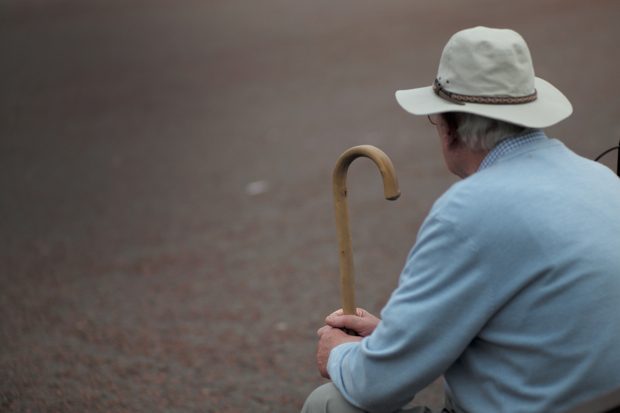Can you think of anyone who isn’t actually better in work than out of it? My mother took early retirement – I mean, early for Ireland where the retirement age was 65 for both men and women (and given that women live longer than men, how did the iniquitous disparity, whereby women live longer than men but retire earlier, last this long?) — and I can date her decline as a person from that point. She loved her work as a secretary. I can think of men who retired from the paper I work for as soon as it was commensurate with their having a final salary pension, but it didn’t make them happier. For most of us, work is tantamount to an answer to the question: who are you? Perhaps some people can still answer that question with the answer: wife and mother, or, just A Creature Made by God, but it’s vanishingly few nowadays.
The life expectancy for both men and women is now in the eighties; Japanese women’s standards, when you think about it. So why do we behave as if having our retirement snatched from us – pace today’s Daily Mail splash, which suggests millions will retire in their 70s – is a bad news story rather than a good news one?
When the universal pension was first established, most people wouldn’t live to draw it for five years after they got it; now nearly all of us do. And living a life of worklessness is bad for nearly all of us, apart from heavy manual labourers. Most of us are in possession of our faculties until we’re 75, thank God. The condition of age has never been more different from that of our grandparents – having said which, all of mine could have worked to the end. Work brings sociability, routine, a place in the world, a feeling we matter. The notion that retirement spells satisfaction, a period contently rearing grandchildren, is a myth when so many of the generations live physically remote lives from each other. Personally, I can’t afford to die, let alone retire.
Can we be brutal about all this? People in their seventies may not be au fait with social media and may not be as quick to learn new technology as their juniors, but they do have a work ethic which their grandchildren may not have. The other day on the bus from a Dublin hospital, I was chatting to a man of 79, who blessed every day he could still work as a tailor, which he did for the Dublin equivalent of a Savile Row establishment. He travelled to Dublin two days a week and worked stiching the patterns he had cut up in a barn next to his home for the other four days. He was a happy man, discontented only in that none of his children showed the smallest inclination to follow his trade. Personally, I learned more from old dons at Cambridge than I did from young ones – they had more breadth, more scope, better education – and I rather deplored the vote that recently confirmed that they would continue to retire at 65 to make way for the coming generation.
We reproduce far too reluctantly, we western women, which means that the shortfall in labour must be made up in two ways: either by importing foreign labour from high-natality countries, or by working longer ourselves. As far as I’m concerned, it’s no choice. If we work as long as we can, as best we can, we are not just living out the curse of Adam, we’re ensuring that our lives are worthwhile, validated by our contribution to the economy and society. Which obviously isn’t to discount the contribution of the elderly who aren’t economically productive. But in a society where the generational divide has never been more keenly felt, the participation of grannies and granddads in the workplace has to be good for them and for the rest of us.







Comments